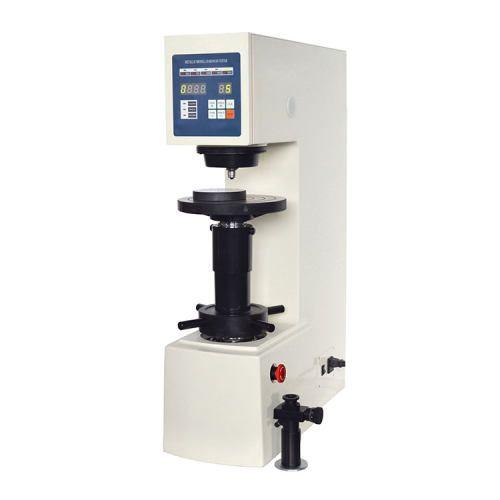What Factors Should I Consider When Choosing a Brinell Hardness Tester?

Selecting the most suitable Brinell hardness tester requires careful consideration of several factors to ensure it aligns perfectly with your specific testing needs and application. Here's a detailed breakdown of the key points to ponder when making your choice:
Understanding the Material
l Material Type: The primary factor is the type of material you'll be testing most frequently. Brinell testers excel at evaluating metals and alloys, but their applicability extends to some harder plastics and composites as well. Knowing the specific materials you'll be working with helps determine the tester's compatibility.
l Hardness Range: Consider the expected hardness range of the materials you'll be testing. Brinell testers come with varying load capacities, typically ranging from low loads suitable for softer materials like aluminum to high loads for testing very hard materials like tool steels. Choosing a tester with a load capacity exceeding the hardness of your materials ensures accurate results.
Portability vs. Precision
l Testing Location: Evaluate where you'll be conducting your hardness tests. If you need a tester for on-site evaluation of large or immovable workpieces, a portable Brinell tester is the way to go. These compact and lightweight models offer flexibility for field testing needs.
l Precision Requirements: If high precision and a wider range of load capacities are crucial for your application, a bench-top Brinell tester is a better choice. Their sturdier construction and higher load capabilities translate to more precise hardness measurements. Bench-top testers are ideal for laboratory settings where portability is less of a concern.
Test Frequency and Volume
l Testing Frequency: Consider how often you'll be using the tester. If you anticipate frequent testing, a robust bench-top model might be a more reliable long-term investment. These testers are generally built for higher testing volumes and offer greater durability.
l Test Volume: Think about the anticipated volume of tests you'll be performing. For high-volume testing scenarios, a bench-top tester's efficiency and higher load capacity can significantly improve your testing throughput.
Additional Considerations
l Budget: Brinell testers come in a range of prices depending on their features, load capacity, and portability. Determine your budget and choose a tester that offers the necessary capabilities while staying within your financial constraints.
l Ease of Use: Consider the user-friendliness of the tester, especially if multiple operators with varying levels of experience will be using it. Look for testers with intuitive controls, clear displays, and readily available user manuals for training purposes.
l Maintenance Needs: All machinery requires maintenance. Evaluate the ease of performing routine maintenance on the tester, such as calibrations or lubrication. Some testers have simpler maintenance requirements compared to others.
l Manufacturer Reputation: Choose a Brinell hardness tester from a reputable manufacturer known for quality equipment and reliable customer support. This ensures you get a dependable product with readily available spare parts and technical assistance if needed.
By carefully considering these factors and matching them to your specific application, you can make an informed decision and select the most suitable Brinell hardness tester to meet your testing needs effectively. Remember, the ideal tester is one that offers the right balance of features, portability, and precision to deliver accurate and reliable hardness measurements for your materials. You might also be interested in How to Maintain a Brinell Hardness Tester for Optimal Performance?
- Art
- Causes
- Crafts
- Dance
- Drinks
- Film
- Fitness
- Food
- الألعاب
- Gardening
- Health
- الرئيسية
- Literature
- Music
- Networking
- أخرى
- Party
- Religion
- Shopping
- Sports
- Theater
- Wellness


